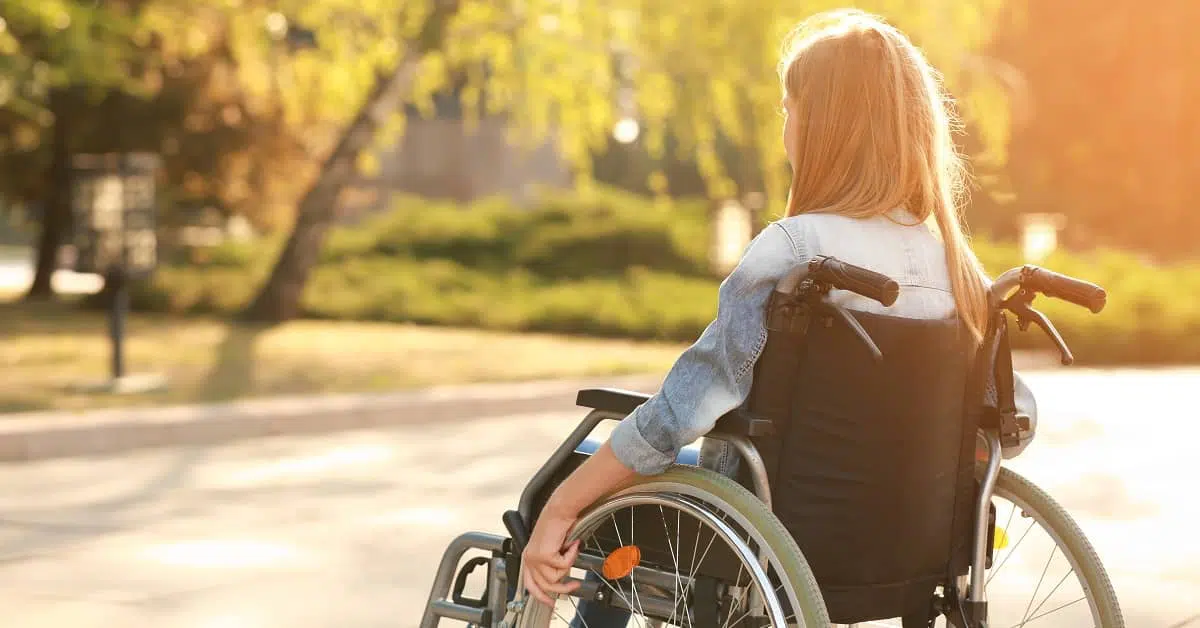
Few conditions are as challenging to deal with as paralysis. Not being able to move part or all of your body can make it hard to take care of yourself or others and to live an active, engaged lifestyle.
Unfortunately, the cause of paralysis is sometimes the negligence of another. This can happen in vehicle accidents, for example, where a driver’s carelessness leads to an accident that causes a spinal cord injury.
While spinal cord injuries can range from minor to severe, in the worst cases they result in some form of paralysis. They may lead to paraplegia or quadriplegia.
If you or someone you love suffered damage to the spine in an accident, the spinal cord injury lawyers at the Karl Truman Law Office can pursue compensation on your behalf. Contact us in Kentucky or Indiana today for a free consultation.
There are many different types of paralysis, including complete paralysis, partial paralysis, localized paralysis, generalized paralysis, and more.
The most relevant types of paralysis for paraplegia and quadriplegia are:
With that in mind, paraplegia is either partial or complete paralysis in both legs and possibly in the lower torso. Quadriplegia, on the other hand, means all four limbs and the entire torso are completely or partially paralyzed.
Both of these conditions can be caused by either a traumatic injury – such as a car accident – or another health problem, such as a stroke, cancer, or infection.
Tetraplegia is another term for quadriplegia. Tetraplegia is more often used in Europe, while quadriplegia is the more common term in the United States.
Since people with paraplegia still have control over their upper bodies, including their arms, they are often able to live with some degree of independence. They may be able to walk with assistance from braces or crutches, though wheelchairs are also commonly used.
Of course, there are still many challenges and complications that come with paraplegia. First and foremost, studies have shown that paraplegia can negatively impact one’s physical health, psychological well-being, social relationships, and quality of life.
In addition, paraplegia can lead to further physical problems, including chronic pain, high blood pressure, sexual dysfunction, weight gain, and more. Physical activity is difficult, and an overreliance on one’s upper body can lead to joint damage to the wrists and shoulders over time.
Individuals with paraplegia need to make sure their living spaces are well-suited for them to navigate around and that they have the help and support they need to lead an active, healthy lifestyle.
As difficult as paraplegia is to cope with, the challenges of quadriplegia are even more extreme. When you are unable to move any of your limbs, it’s not possible to live your life independently, meaning you require the help and assistance of loved ones and professionals. It may also affect your ability to speak, eat, or breathe, all of which can make life difficult.
Quadriplegia also makes it hard to be active, so individuals with quadriplegia often experience bone and muscle loss. The significant amount of time sitting and lying down may also cause bedsores (pressure ulcers), which can lead to infections.
More than anything, people with quadriplegia need to make sure they have the help and support they need to stay healthy and positive while finding ways to keep their minds engaged and active.
While there is no cure for paralysis, there are treatment options – including surgical, pharmaceutical, and rehabilitative – that may help individuals regain some of their lost movement or feeling over time. On the psychological side, individuals with paraplegia or quadriplegia always have the opportunity to live a healthy lifestyle. It’s not easy, and it will require support from others – including family, friends, and others managing the same condition – but it is possible.
For those who suffered a spinal cord injury due to the fault of another, there is also the opportunity to pursue compensation against the negligent party. This can help pay for expenses related to the accident, including medical bills, rehabilitation, lifestyle modifications, and more. Victims may also be able to recover compensation for the emotional and psychological difficulties that come with their injury.
While this compensation cannot undo what was done, it can help in the journey to wellness. At the Karl Truman Law Office, we encourage anyone who has suffered a spinal cord injury in an accident to get in touch with a personal injury lawyer to discuss their options.
The most difficult struggle for anyone who has suffered a catastrophic spinal cord injury is the personal struggle – finding peace with what happened. However, the legal struggle can also be a challenge.
The costs associated with spinal cord injuries are often great, and the parties at fault for accidents resulting in catastrophic injuries will fight to avoid compensating you fairly. You need an experienced spinal cord injury lawyer to act on your behalf and pursue fair compensation for your losses.
At the Karl Truman Law Office, our mission is to do everything we can to right the wrong. While we can’t reverse time, we can ensure that accident victims who were seriously injured due to no fault of their own recover the compensation they and their families need and deserve.
The Karl Truman Law Office serves clients in and around Louisville, Kentucky (call (502) 222-2222), and Jeffersonville, Indiana (call (812) 282-8500). Contact us today for a free consultation.